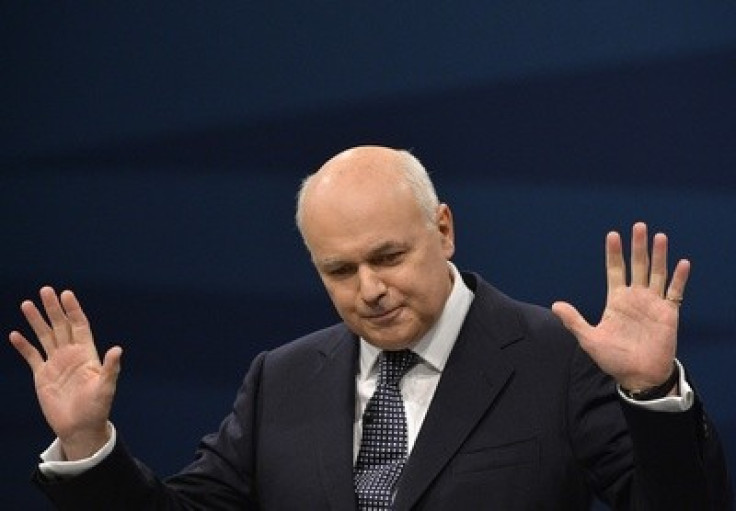Government's Benefit Reforms in 'Chaos' as Targets Set to be Missed

According to Iain Duncan Smith, the government's ambitious plans to reform welfare benefits have been "reset" but will be delivered on time and within budget.
That is despite repeated claims from organisations including the Office for Budget Responsibility (OBR) that it has already wasted millions of taxpayers' cash and will miss key deadlines by years.
Now, and not for the first time, the work and pensions secretary is the subject of a whispering campaign in Westminster with critics, even on his own benches, suggesting it is he who needs to be reset.
Replacing a raft of benefits with a single Universal Credit was not a new idea when Duncan Smith first proposed it in 2010 and, even now, Labour supports the policy.
But Duncan Smith was the first minister to actually believe he could make it work and there are now serious doubts about whether that will be the case.
Duncan Smith has faced repeated claims he is missing his targets, that the vital and complex IT systems have failed, that only a handful of claimants are likely to be receiving the credit within his original timescale and that the entire process is wasting millions.
Only weeks ago, the National Audit Office claimed £140 million would have to be written off and the Major Projects Authority, a government troubleshooter, said another £200 million of IT spending could be worthless.
There was also an angry backlash from politicians and civil servants alike when it was suggested the minister had attempted to blame senior Whitehall officials for the failings rather than taking responsibility himself.
Now he has been forced to admit around 700,000 individuals will not move onto the scheme until after the target date of 2017, despite repeatedly insisting the timetable would be met.
And Labour claim figures in the autumn statement showed the £2bn project was "in tatters" because only 400,000 people will be receiving UC in 2015-16 instead of the 4.5 million originally claimed.
Duncan Smith has insisted he "never really wanted to dwell on figures" because things were bound to change with such a massive project. But he admitted: "This plan is different from the original plan" adding that was because he wanted to get it right, even if that meant going more slowly.
"It is on budget and 6.5 million people will be on the system by the end of 2017," he said.
But Labour's Rachel Reeves said the latest figures from the OBR showed the entire project was in chaos, adding: "At the time of the general election, 1.7m people were supposed to be claiming Universal Credit. Instead, the Office for Budget Responsibility says that just a handful will be. This whole project is now in total disarray," she said.
Meanwhile, the prime minister was said to have complete confidence in Duncan Smith. His spokesman said he was doing "absolutely the right thing with such an important project by taking on board lessons from pilot projects.
But his critics, even some on his own benches, fear the entire project is now creaking at the seams and may have been far too ambitious in the first place.
Suggestions, flatly denied, that chancellor George Osborne claimed Duncan Smith was "thick" are being revived amid claims he simply was not up to such a massive challenge.
There have been previous suggestions that the prime minister should sack him but, as the scheme is entirely his own personal project, he is expected to see it through to the bitter end.
The government is calculating that, whatever the problems with the scheme, voters will support the image of them getting tough with welfare claimants. And, in any case, no minister in their right mind would want to take on the project at this point.
© Copyright IBTimes 2024. All rights reserved.






